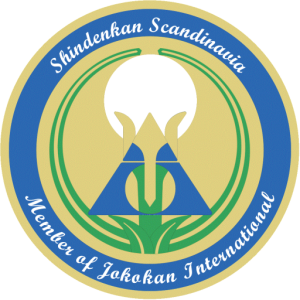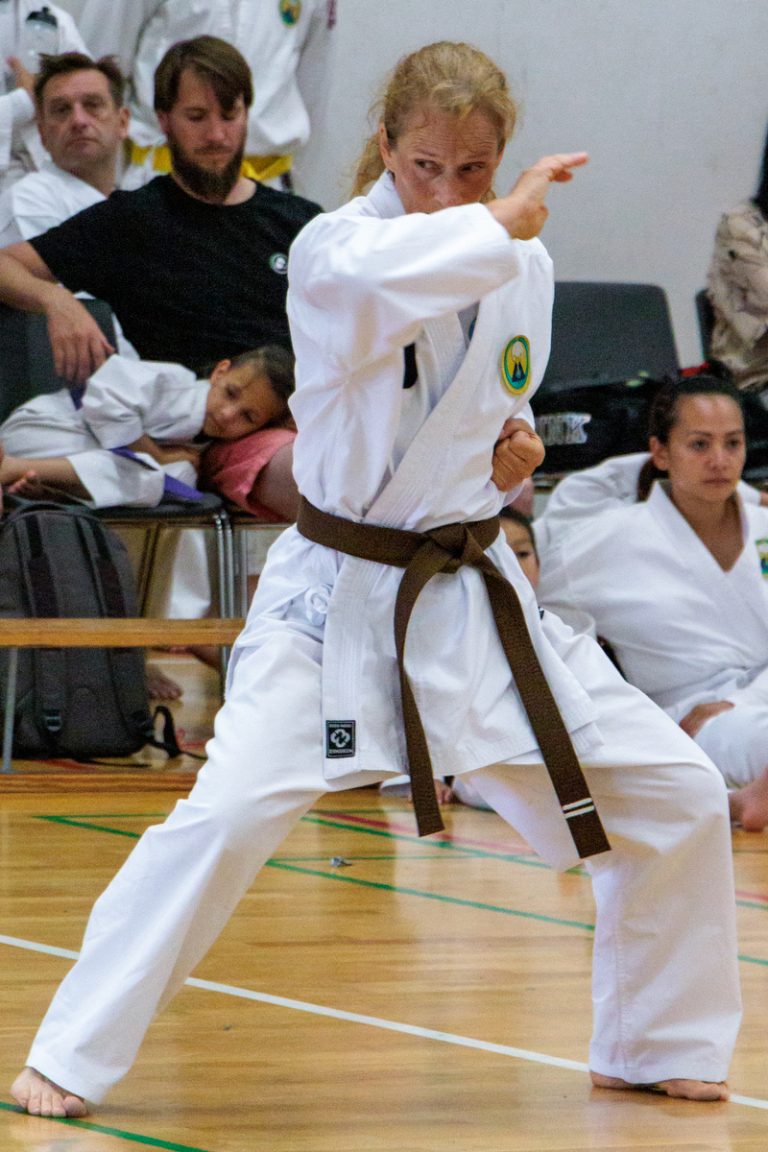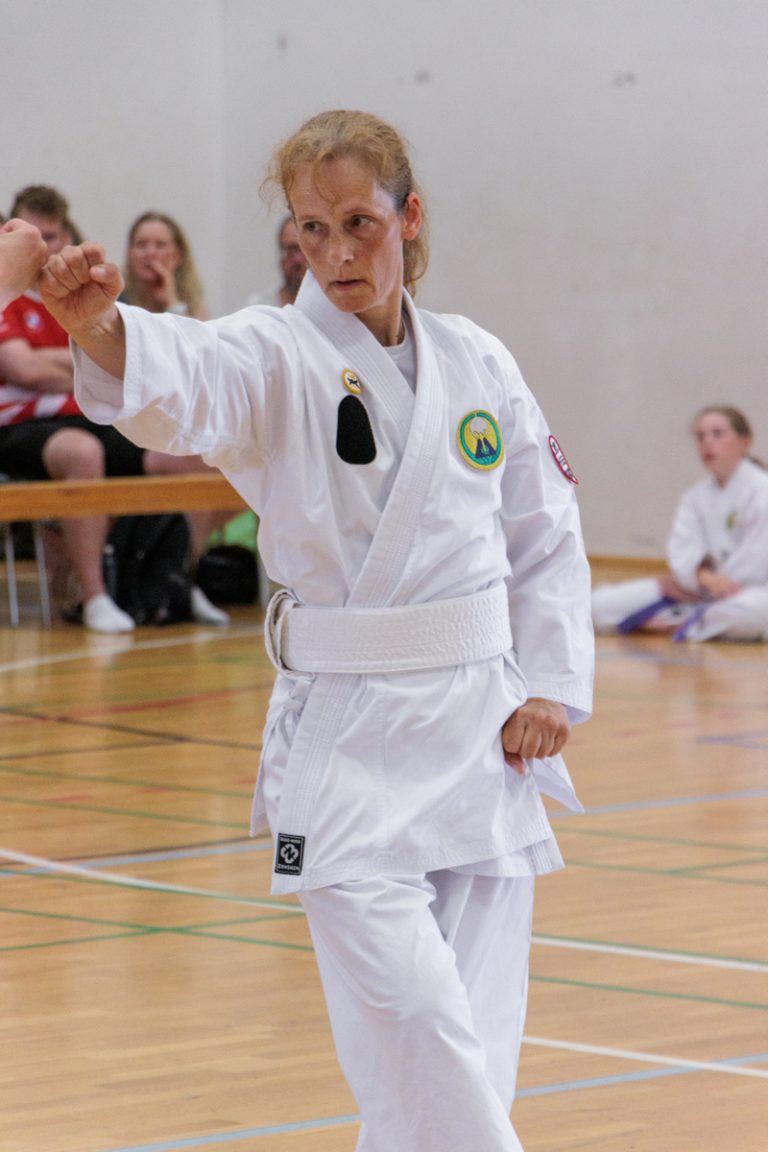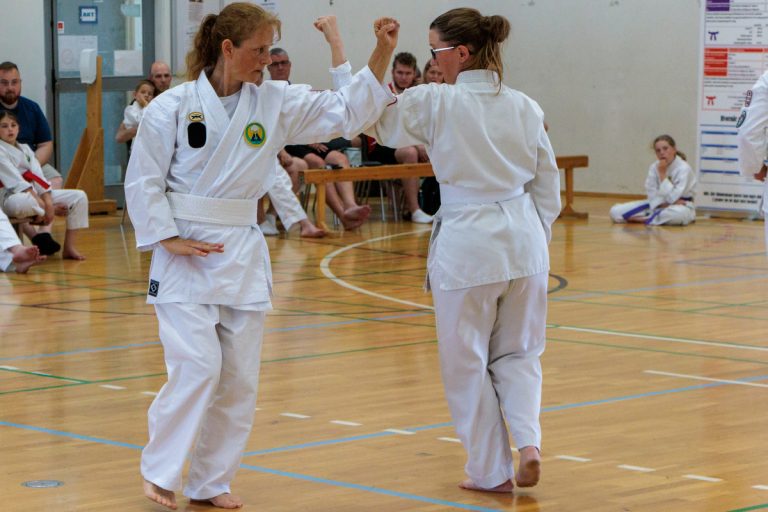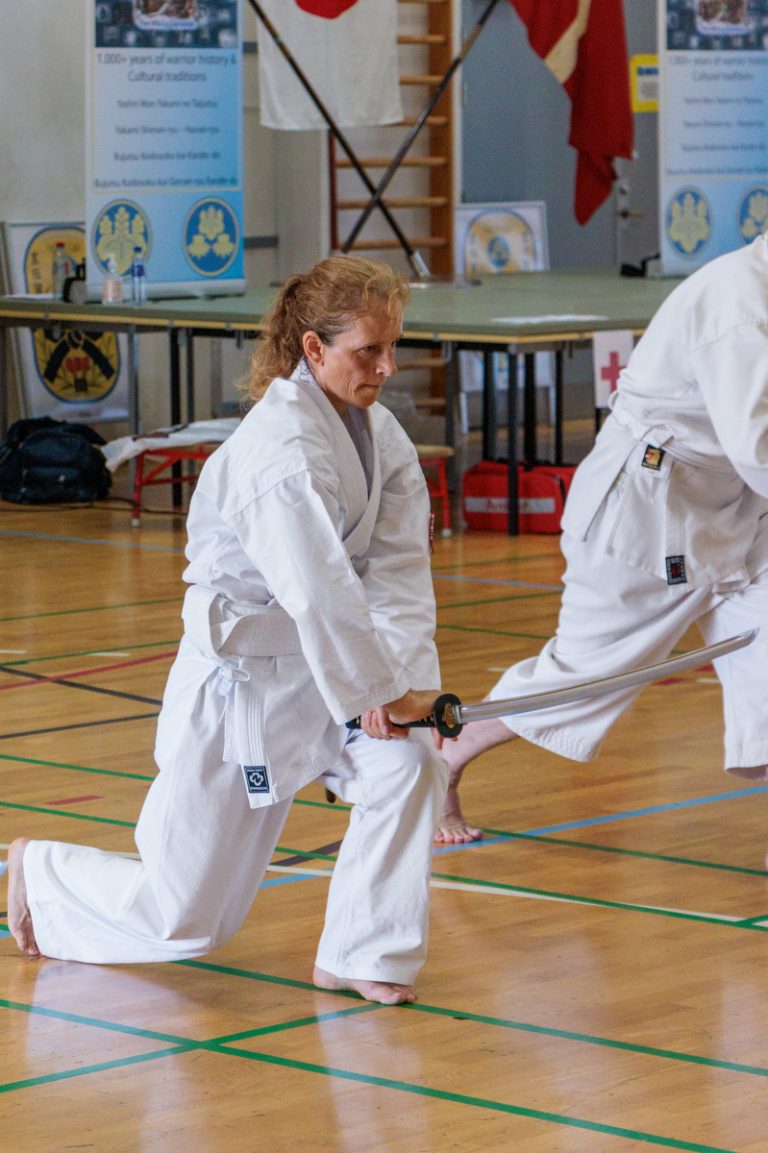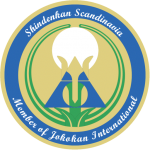
Just graduated 1st kyu in Yakami Shinsei-ryu Taijutsu & Karate-do (YSTK) Yaaaaah.
For the summer meeting, I have just graduated 1.kyu in Yakami Shinsei-ryu Taijutsu & Karate-do (YSTK) after passing several stop tests for the degree. Yaaaaah.
The event ends with the stamina pad test, 2 minutes of hitting, 2 minutes of kicking and an unknown number of minutes of both. Full throttle, because otherwise it will only get harder as Kimu Sensei then extends the time for everyone. There is no doubt that it is hard, but the encouraging shouts and good energy from all the participants, as well as the pillow-mate's help and support, help me through. And once I've come this far, of course I don't give up, even if my arms are paralyzed, my legs are heavy and my lungs are empty, because this is the last stop test in the series. Breathing is absolutely essential in this test and most people reach a point with blue lips because there is not enough oxygen in the blood. So it's good that I specifically practiced breathing this year.
The OBC KM stop test is also part of the summer meeting, and the time when retention and progression within the multi-track competencies are tested. This year the test was extended, so that both Task Fighting and all the weapons courses up to and including 1.kyu were tested. With more than 20 competence courses in the bag, there is a lot to train on. Fortunately, for each course provides new knowledge and understanding in the overall picture. I personally prefer the weapon skills, but Shakuasei is also one of the favorites.
But what is the process and preparation for the stop tests that are carried out before the actual event actually like? Yes, for me the physical tests, which are carried out approx. 1 month before the convention, again this year has been the big challenge, and where I have had to make an extra effort to succeed. Both physically and mentally.
The word stop tests means that these are tests that must be passed in order to progress in the graduation process, and focus on the 2 physical tests (1. Fitness test/KataFIT 5S and 2. SKK/KataFIT 12S) which must be passed first, therefore becomes the first necessity.
I've always had (and probably always will) difficulty doing push-ups, especially the slow Shindenkan push-ups. And the higher the KataFIT number, the more difficult, because then it is not 'only' a physical challenge, but also a mental one. When the going gets physically tough, I tend to give up mentally. Thinking 'I can't do this' and 'wow, it's too hard', and then maybe it's not so strange that I physically can't. The thoughts block my breathing so that I cannot harmonize breathing and movement, which is a 'must' in KataFIT. One step on the training path is therefore to be constant and to push myself, even if it is hard. To believe that it can succeed, because then the results will come at some point. And in the process, to 'eat the elephant' one bite at a time. So, if the KataFIT 12S is an elephant, then I get through the 36 slow Shindenkan push-ups by thinking about just 1 push-up at a time. Then I can actually get the elephant down.
For the fitness test this time I had chosen to take the bicycle, where I ran for the 2nd kyu graduation. However, I get bored when I have to run on a treadmill, and then the mental aspect comes into play again and the motivation drops. So the choice fell on the bicycle, where I have trained partly by taking part in spinning classes in the Fitness centre, and partly by using an exercise bike at home in front of the television. In this way, training can be more easily made fun, feel less hard and fit into other routines.
This year, fortunately, there have also been many of us from the same local school who have prepared together for the final exams. We have therefore been able to inspire, encourage and support each other continuously in the process, which is clearly a great help and which at the same time provides good unity. The preparation time for the physical tests is 6-12 months, and over time, when it may be difficult to keep up the motivation at times, just having several people training towards the same goal is a great support.
The physical tests are probably the first obstacles, but not the most important in a graduation. After the physical tests, Ruygi (theory) tests follow, both written and oral. And it is at least as important to prepare for them. I have been lucky enough to have a fantastic training partner, Mads, who, with enthusiasm, always in a good mood and good energy, has taken the initiative to meet weekly for a long time, to practice theory together. It is now the 3rd year that we train ryugi together, but the first time that we both go to graduation and train on an equal footing. We have practiced prepared answers from the syllabus handbook, talked about the organization in general, answered all questions and looked at pictures on the website, which document our individual and common path in Shindenkan over the last at least 10 years. It has provided incredibly good energy and community spirit, for which I am grateful. And last but not least, we have both passed the Ryugi tests with great results. So it can only be recommended to find a training partner.
The teaching of the technical curriculum (Ryuha), karate and course competencies takes place throughout the year locally and is developed nationally through the annual OBC courses as well as BB/SB and NKT training. As you know, it's at the very highest level, and it's just super cool to constantly expand your understanding, see connections and get new details that improve your technique - super cool. And it is of course a core competence, and one of the most important final tests in graduation. The Ruyha part is trained throughout the year, but extra focus can be given after the physical stop tests have been passed, where I have therefore taken part in several trainings in the other local schools, and in that way increased the training effort up to the stop test itself.
The local school is of course one of the most important elements in one's training because in addition to reviewing the entire technical syllabus for the degree, it is precisely here that there is an opportunity for individual correction of execution, so that we are constantly improving. With mega-good teaching, my attendance percentage is therefore also close to 100 %.
In relation to Ryuha training, it is of course not enough just to receive instruction to get better. There is also a need to practice between training sessions and to correct for individual corrections. Nationally, 'Breathe' is one of the corrections I have received the most times. Here it is again, the mental blockage of the breath, which does me no good and which I am therefore made aware of again and again. Because when I hold my breath, I block the flow of energy in the body. Everything comes to a standstill. So it's something I've worked on and constantly try to focus on. Both MBH, KataFIT and SKK are really good tools in the process, but also TaiChi and general training at a slow pace. And just focus on that, also in everyday life. And fortunately, progress is being made.
The Ryuha test did not go as expected. On the test day, the test was announced as already passed during a previous BB/SB training, where we had really been driven around the syllabus. None of the participants knew that we were actually doing a road test. This can also happen, so you must always be prepared in a graduation process and do your best.
Fortunately, I have plenty of potential for improvement, which I look forward to working on towards the next graduation. I don't have a specific goal, but generally enjoy constantly improving, and graduation is part of that.
Several stop tests that all have to be passed in order to reach the next level is immediately a big mouthful, but when passing each stop test gives a wonderful feeling of having fought for and overcome an obstacle (oneself), then it is a good thing. And you can get a little addicted to that, so my ambition is to continue the journey with new challenges and overcome myself on the way to the next belt. Because in Shindenkan it is not just required that you learn a new kata for a graduation, but that you develop yourself as a person. And who doesn't want that.
